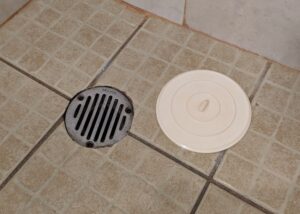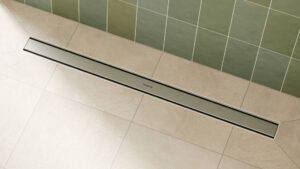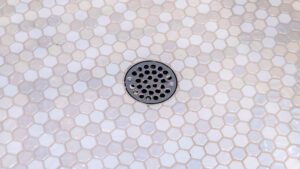When it comes to maintaining a clean and fresh bathroom, one of the most overlooked areas is often the shower drain. The thought of using harsh chemicals to tackle a clogged drain might be daunting for many, especially for those who are environmentally conscious. Thankfully, there are effective ways to clean a shower drain without relying on chemicals. This guide will take you through the steps to ensure your drain is free-flowing and fresh without harming the environment.

Why Avoid Chemicals?
Traditional drain cleaners contain harsh chemicals that can be harmful to both the environment and your plumbing. These substances can corrode pipes over time, leading to costly repairs. Moreover, the toxic fumes can be hazardous when inhaled. By opting for chemical-free methods, you contribute to a healthier home and planet.
Signs Your Shower Drain Needs Cleaning
Before diving into the cleaning methods, it’s crucial to recognize the signs that your shower drain is clogged or needs attention. Look out for slow draining water, unpleasant odors, or gurgling sounds. These are clear indicators that it’s time to take action.
Slow Draining Water
If you notice water pooling around your feet during a shower, it’s a sign of a partially clogged drain. This can be caused by a buildup of soap scum, hair, or other debris.
Unpleasant Odors
Foul smells emanating from your drain could indicate organic matter buildup, such as hair and soap scum, that is decomposing.
Tools You Will Need
Before starting, gather the necessary tools to clean your shower drain effectively:
- Rubber gloves
- Drain snake or wire hanger
- Plunger
- Baking soda and vinegar
- Boiling water
- Old toothbrush
Step-by-Step Guide to Cleaning Your Shower Drain
1. Remove the Drain Cover
Start by removing the drain cover. You might need a screwdriver for this task. Once removed, inspect the drain for visible blockages like hair or soap scum.
2. Use a Drain Snake or Wire Hanger
Insert a drain snake or a bent wire hanger into the drain to dislodge and remove any visible clogs. This method is effective for removing hair and other debris that might be causing the blockage.
3. Apply the Baking Soda and Vinegar Solution
This natural cleaning method involves pouring half a cup of baking soda followed by a cup of vinegar down the drain. Allow the mixture to sit for about 15 minutes. The chemical reaction between the two substances helps break down the clog.
4. Flush with Boiling Water
After the baking soda and vinegar have done their job, flush the drain with boiling water. This step helps clear any remaining debris and ensures the drain is clean.
5. Scrub the Drain Cover
While waiting for the baking soda and vinegar to work, take the time to clean the drain cover with an old toothbrush. This will prevent future clogs by ensuring no debris is left behind.
Preventing Future Clogs
Once your shower drain is clean, you can take steps to prevent it from clogging again:
- Use a drain cover to catch hair and debris.
- Regularly clean the drain and remove any visible blockages.
- Run hot water down the drain after each shower to help clear minor buildup.
Environmental Impact
Using chemical-free methods not only protects your plumbing but also reduces the negative impact on the environment. By choosing natural alternatives, you minimize the release of harmful substances into the water system.
Additional Tips
For stubborn clogs, consider using a plunger to create suction and dislodge the blockage. Additionally, maintaining a regular cleaning schedule can help keep your shower drain fresh and free-flowing.
Related Reading
For more insights on maintaining household systems, you might be interested in learning about PRV actuator options or understanding the impact of system backpressure on PRV.
External Resources
For additional eco-friendly cleaning solutions, explore more on Western Rooter’s guide.

FAQs
Can I use baking soda and vinegar for all types of clogs?
While baking soda and vinegar are effective for many clogs, severe blockages might require professional attention or more robust tools.
How often should I clean my shower drain?
It’s advisable to clean your shower drain every month to prevent buildup and maintain a fresh-smelling bathroom.
Are there any risks to using natural cleaning methods?
Natural methods are generally safe for your plumbing, but it’s essential to ensure that your pipes can handle the heat from boiling water.
This article contains affiliate links. We may earn a commission at no extra cost to you.




